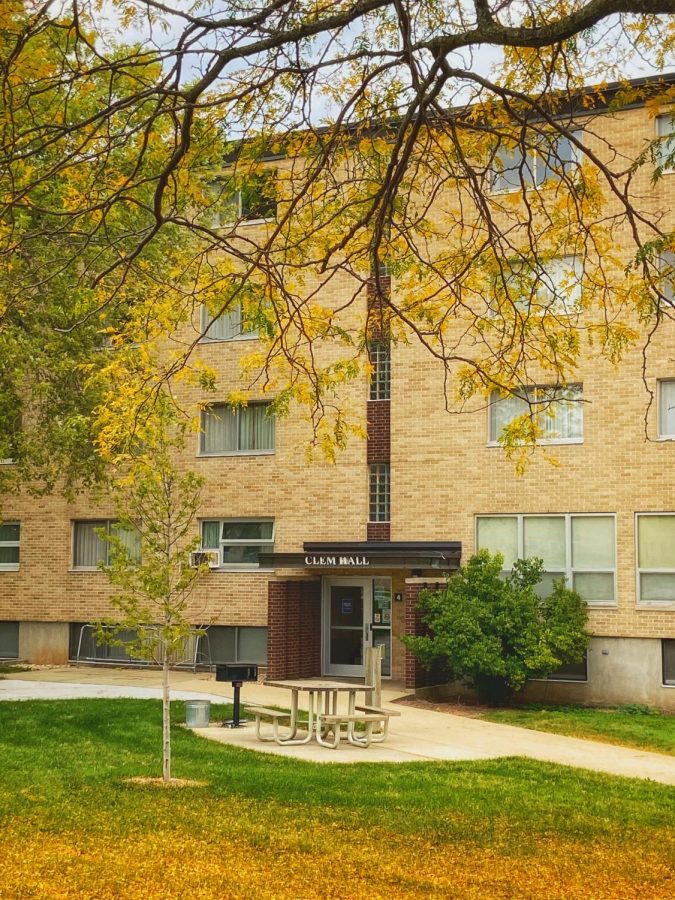Students around system react to pandemic
Clem Hall is available for students who need to quarantine with the help of University Housing and University Health & Counseling Services.
September 27, 2020
The COVID-19 pandemic moved UW System classes, residence halls and even whole campuses online for some duration this fall. Every school and student across the state is affected in some way.
“I enjoyed having the opportunity to talk to my professors in-person in order to get instant feedback and know exactly what they want,” says UW-Whitewater student Kaycee Diel. “However, I enjoy being able to go to class in my pajamas and feel comfortable that I am still getting an education.”
Universities in Wisconsin opened with restrictions for in-person classes and many moving online. After just a few weeks some residence halls were quarantined on campuses, and eventually schools like UW-Madison moved completely online for two weeks in an effort to flatten the curve. There are more than 50 nation-wide closures affecting over 850 million learners, according to the United Nations Educational, Scientific and Cultural Organization (UNESCO).
“The on-campus experience here at Madison feels very confined. Even though it’s big, someone is constantly breathing down your neck making sure you are following all the guidelines,” says freshman Abby Leeland at UW-Madison. “Not being able to go to games has been a huge struggle because that looked like the most fun and where you meet new people.”
Leeland recently graduated from Portage High School in Portage, Wisconsin.
“In high school, I felt that online learning was at first hard to acclimate to, but as time moved forward it got easier and easier because I had already known the expectation for my high school courses. Now that I am in college, I almost feel completely blind sighted as I have never experienced the intensity of college courses or their workload,” says Leeland. “I feel that I will run into some of the same challenges from last year (the typical glitches and misunderstandings that come with online schooling), but for the most part I feel that online learning in college will be much harder, considering I didn’t know what to expect in the first place.”
After the pandemic struck, students had to juggle school, work, and personal life. In an article called “Grading for a Pandemic” by Colleen Flaherty, the scholar states that being more lenient on work can help a student in their personal life.
“Mentally, the workload was a lot for me because I had to work and do school at the same time in order to keep paying for my schooling,” says Olivia Limmex of UW-Milwaukee. “Last semester I think the course load was lifted and definitely more lenient. However, this semester seems to have more course work and higher expeditions which I think I am more prepared for.”
In-class learning is a greater learning experience for group activities and instant feedback, according to Purdue Global. However, online learning can do well for those with social anxiety.
“The social aspect of learning is hard to come by now,” says Limmex. “I think our learning experience is lessened and not as high in quality compared to in-person, but I have enjoyed sitting in my room all day and not having to leave if I don’t want to.”
The change in learning environment is not ideal for some students, but universities worldwide are working to make learning during a worldwide pandemic a better situation for all.
“I know I can’t control any of it,” says Diel. “I just have to do my best to make the most of it.”












